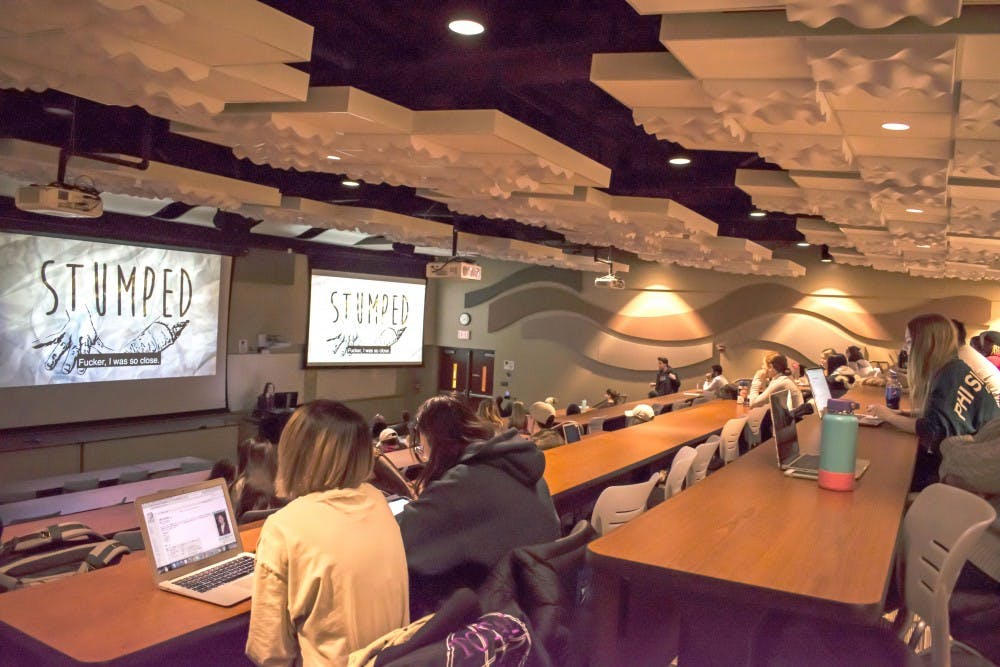Superfest Disability Film Festival held a showcase last Tuesday in Kreger Hall as a part of Miami University's Diversity Week. The event featured six short films intended to dismantle viewers' preconceptions about living with disabilities.
"The goal of Superfest is to start a positive dialogue surrounding disability," said Dan Darkow, an accommodations coordinator at Miami's Miller Center for Student Disability Services. The Miller Center and the Students with Disabilities Advisory Council (SDAC) served as event c0-sponsors.
The focus of most of the films was not about disability, but rather the stories of the main characters who just happened to have disabilities.
Superfest is about depicting disabled people in everyday life not as a separate entity, but just as a community of people who contribute to the diversity in the world.
Superfest Disability Film Festival is the longest-running film festival of its kind. The festival is produced by the Paul K. Longmore Institute and LightHouse for the Blind and Visually Impaired in San Francisco, California. The two-day festival began in 1970 in San Francisco and has expanded every year since.
"The mini-showcases are fairly new - popping up on college campuses around the country - and have been a booming success so far," said Cathy Kudlick, director of the Paul K. Longmore Institute.
According to the Superfest site, disabled filmmakers from all around the world submit hundreds of films every year that are then selected by a jury of filmmakers, disability rights activists, scholars, community organizers and award-winning creatives. The jury then selects films that are edgy, unexpected and avoid disability cliches.
"Everyone always thinks, 'Oh no, don't laugh at the disabled people.' - It's funny, you can laugh," Kudlick said, referring to the films, before Tuesday's event.
During the first film, Maureen Beck, a one-handed rock climber, looks straight into the camera and says "Suck my stump," to able-bodied people who feel the need to call her "inspiring" for missing a hand.
The second film, "Awake," featured a blind Jehovah's Witness and a blind woman with multiple sclerosis who bond over smoking marijuana and baking cakes.
Later, during the film "Voodoo Doll," a Type-1 diabetes patient explains the pain of dealing with the American healthcare system.
Another filmmaker utilized home videos and interviews with his own parents to show how having Obsessive Compulsive Disorder has worked in his favor, helping him concentrate on long term projects.
Each film used open audio description -- an ongoing narrative playing throughout the film to explain what is happening on the screen for those who are visually impaired in the audience.
In "Voodoo Doll," open audio description described the main character being stabbed over and over again by needles as it happened on the screen. In "Stumped," it was used to describe the intense movements of the main character as she struggled to climb higher than she ever had before.
During an intermission, an audience member described open audio description as hard to adjust to at first, but helpful in noticing some of the easily-overlooked details of the movies.
"My hope is that this [event] will be a creative force and really get people excited," Kudlick said.
beermaej@miamioh.edu

